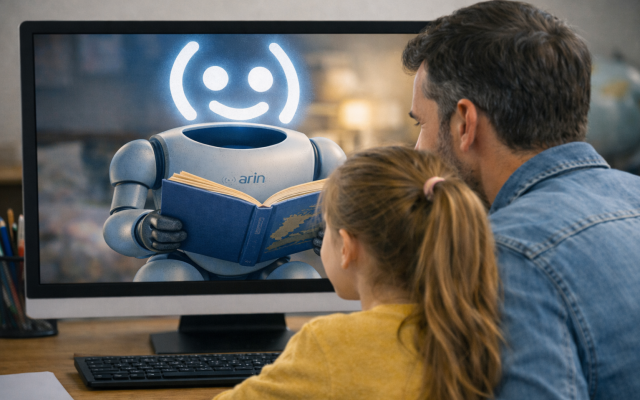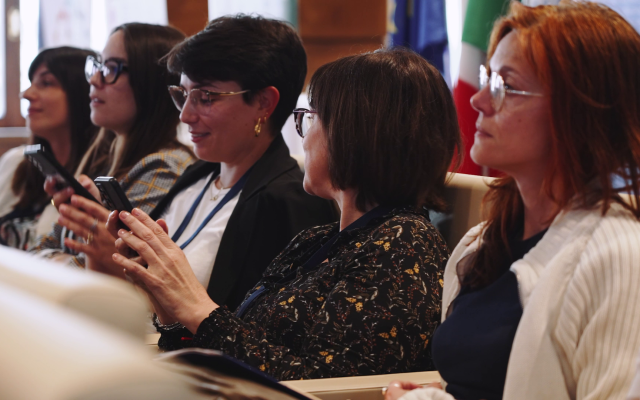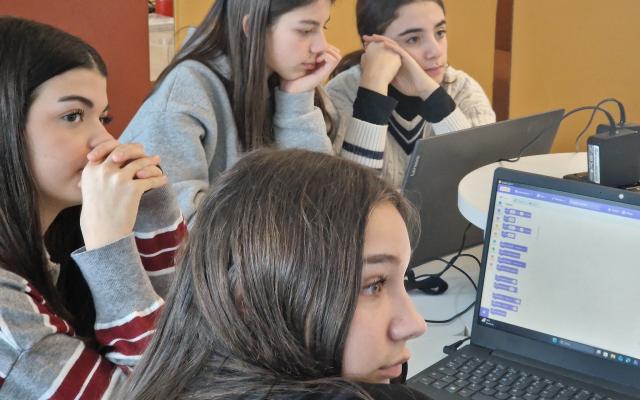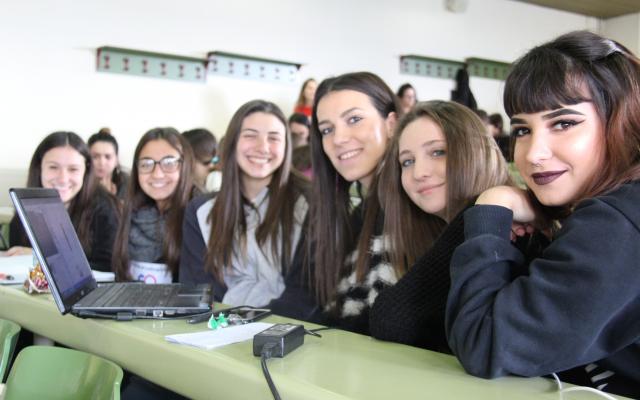The Coding Girls tour starts from the Sicilian capital with the first hackathon
We chose Palermo, Sicily, as the starting point for the 2024-2025 national tour of Coding Girls, with a major hackathon involving 250 high school students, supported by over 50 university tutors. An event that, in the words of Enrico Napoli, vice-rector of the University of Palermo, ‘brings together university and school students on a shared orientation path, creating bridges between humanities and science and promoting gender equality as a resource for all’.
This experience was made possible thanks to the close collaboration between the university and the Fondazione Mondo Digitale, which has been working for years to bring the younger generations closer to STEM disciplines. ‘Coding Girls is a valuable opportunity to bring girls closer to the world of science and technology’, emphasised Luisa Amenta, Vice-Rector for the Right to Education, “Through play, challenge and teamwork, young people can discover new passions and imagine their future even in fields that are initially far away”.
The city of Palermo has also proved to be a fertile and welcoming environment for this initiative. ‘This is a city that can truly become a prototype of digital innovation’, said Maurizio Carta, councillor for the Municipality of Palermo with responsibility for Relations with universities. ‘Thanks to its ability to attract talent, the liveliness of the school and university fabric and the creative force of the girls involved in initiatives like this, Palermo becomes an augmented city, enhanced by the intelligence and genius of the new generations’.
Yesterday, Tuesday 8th April, the first hackathon of the national tour took place, concluding the annual Coding Girls programme. The challenge, organised in collaboration with the University of Palermo, involved 250 secondary school students from the Palermo area, supported by university tutors from various departments, including Physics, Chemistry, Engineering, Business Studies and Statistics, and Biological, Chemical and Pharmaceutical Sciences and Technologies [see the news item Coding Girls in Palermo].
One of the objectives of the hackathon is to introduce the younger generations to STEM subjects (Science, Technology, Engineering and Mathematics) through collaborative work in five thematic challenges.
The winners of the thematic challenges
![]() CODING WITH ARDUINO
CODING WITH ARDUINO
Most creative and innovative project
‘Food expiry monitoring system with acoustic and visual warning’
team Gli Arduini of class 4C of the Giovanni Meli high school
In the team Annalisa Aloi (17 years old), Alessandro Augello (17 years old), Sofia Cumbo (17 years old), Vittoria Vaccaro (16 years old), Marco Giannone (16 years old)
Description: this is a system that allows you to record food and monitor its expiry date. Using a button, the user can record a food product, starting a three-day countdown (which can be simulated or customised). When the expiry date approaches, the system displays a message on the LCD screen and activates a buzzer to alert the user. The project helps to reduce food waste, ensuring that food is used before it expires.
More inclusive project
‘Saving energy for lighting’
Save it, don't waste it team from Felicia e Peppino Impastato high school (4th year C class)
Team members: Martina Ferrara (17 years old), Mattia Bongiorno (17 years old), Gaspare Ortoleva (17 years old), Beatrice Lupo (17 years old)
Description: the project focuses on saving energy from light that is sometimes left on and forgotten, wasting enormous amounts of energy that can be used when needed.
![]() CHATBOTS ARE ALL YOU NEED
CHATBOTS ARE ALL YOU NEED
Most creative project
‘Guardians of energy, creators of tomorrow’
Hack-ademiche team from Felicia e Peppino Impastato high school (4th year D class)
Team members: Martina La Franca (17 years old), Chiara Cangialosi (16 years old), Michela Faraci (17 years old), Cristian Pellerito (17 years old), Giovanni Tinnirello (17 years old).
Description: the project aims to reduce energy waste by promoting conscious behaviour and the use of efficient technologies. The objective is to reduce consumption, lower energy bills and contribute to environmental sustainability.
Most innovative project
‘Reducing energy waste’
team Gli elettroni of the Felicia e Peppino Impastato secondary school (4th year D class)
In team Noemi Lucchesi (17 years old), Adam Nobile (18 years old), Davide Provenzano (17 years old), Alessandro Pellerito (17 years old), Marco Provenzano (17 years old)
Description: we created a canvas presentation to talk about the delicate situation regarding energy waste which, inevitably, involves the whole world in various areas such as: economic, political, environmental and social. We created questions inserted in the promt and chatbots to get an answer after giving input from various sites.
More inclusive project
‘Natural language processing’
Chat-tastic team from Felicia e Peppino Impastato high school (4th year D class)
In the team Alessia Favara (16 years old), Alessia Macaluso (17 years old), Veronica Caruso (16 years old), Beatrice Cosentino (17 years old), Azzurra Cannizzo (17 years old)
Description: natural language processing. Training a chatbot to help in the fight against the waste of resources and pollution caused by the production of technological components and the use of AI.
![]() PARADOXES IN STATISTICS AND PROBABILITY AND WE ARE THE DATA.
PARADOXES IN STATISTICS AND PROBABILITY AND WE ARE THE DATA.
Most creative project
‘CO2 emissions’
Coding Tigers topic of Felicia e Peppino Impastato high school (3rd year)
Team members Alex Di Carmino (15), Francesco Di Marco (16), Vincenzo Scasso (17), Carmelo Scuderi (16), Giorgio Fazio Peritore (16), Sofia Tocco (16) Description: the project is divided into several slides and aims to give a brief introduction to the impact of carbon dioxide on the world and explain the consequences through a graph.
Most innovative project
‘Improve: a possibility, a responsibility’
Team Class 3U of the Ettore Majorana Institute
Team members: Roberta Zaccaria (16), Diego Messina (16), Francesco Cusimano (16), Martina Argento (16), Federica Ciambra (17), Gianmaria Mazzola (17), Elvira Gennaro (16)
Description: comparison of temperatures in Afghanistan and Spain over the years, correlation with gender gap.
Most inclusive project
‘Let's restore nature, let's recover our future’
Silent Spring team from Ettore Majorana (3rd year U)
In team: Alessia Castagnetta (16), Dalila Oliveri (16), Cristian Randazzo (16), Valerio Ramirez (16), Giulia Caronia (16), Emmanuela Asiamah (16), Federico Giarraffa (16)
Description: the project is an invitation to collective action to remedy the mistakes of the past and build a greener and more sustainable future for our planet.
![]() HOW DOES THE DATA TRAVEL?
HOW DOES THE DATA TRAVEL?
Most creative project
‘La Rete Main’
team The best + the best of the Felicia e Peppino Impastato secondary school (4th year)
In the team: Luca Brunone (17), Nicolò Pitarresi (17), Giuseppe Palazzolo (17), Antonio Cinquemani (17), Rosario Calista (17), Filippo Tolentino (17), Alberto Muratore (18)
Most innovative project
‘Easy driving"
Happy field team from the Maria Adelaide state boarding school (3rd E class)
In team: Elisabetta Taormina (16), Carlotta Venere Romano (16), Vittoria Bassano (16), Noemi Aldegheri (17), Elena Pignoli (16), Maria Stella Manzella (16)
Description: project that allows you to predict the weather conditions and, consequently, send a notification to suggest the safest means of transport to use.
Most inclusive project
‘IOT Communications’
Digital minds team from the Maria Adelaide state boarding school (3rd year EA and 3rd year SI classes)
In team: Aurora Dhrami (17), Greta Messina (16), Giulia Provenzano (16), Floriana Castiglione (16), Rosy Peritore, Alessia Francesca Livorno
Description: after installing Arduino, we used the codes already provided to try and create a new one.
![]() AUGMENTED REALITY FOR CHEMISTRY
AUGMENTED REALITY FOR CHEMISTRY
Most creative project
‘Metaverse of Chemistry’
Team Powergirls of the Ettore Majorana (4th year A)
In the team Diana Di Trapani (17), Sofia Daricca (17), Sofia Picarella (17), Sara Schiera (17), Dalila Ferrara (17), Laura Bivona (17), Aurora Lo Verde (18)
Description: we represented limonene using the following models: Ball and Stick; Space-Filling; Line. We then researched the sustainability of limonene and its environmental impact and created a presentation whose slides were inserted in virtual reality together with the models of the molecules.
Most innovative project
‘Fenchol360’
Molcraft of the Felicia e Peppino Impastato high school (classes 5ª B and 5ª C)
In the team Elio Koci (19), Emanuela Militello (18), Giacomo Palazzolo (19), Giulia Petruso (18), Maria Tamburello (18)
Description: our virtual reality project presents an immersive room dedicated to fenchol, where users can explore the molecule through interactive models and learn more about its uses as a natural solvent. Phencol, integrated with ionic liquids, is presented as an environmentally friendly solution for sustainable chemical processes. We invite you to discover this unique experience, where science and innovation come together to promote a greener future.
More inclusive project
‘Coding Girls. Metaverse of Chemistry’
The penguins of Felicia e Peppino Impastato secondary school (year 4A)
In team: Sofia Costantino (17), Ilenia Sanzone (17), Lorena Cucchiara (17), Silvia Gebia (17), Ausilia Palazzolo (18), Giovanni Lo Vasco (17)
Description: Metaverse for chemistry
The challenges allowed the students to confront real problems, stimulating their creativity and capacity for innovation. The initiative strengthened the collaboration between the Fondazione Mondo Digitale and the University of Palermo, consolidating an educational alliance aimed at promoting digital and scientific culture among young people.
During the event, the teams presented their projects to a jury of experts, who evaluated the proposed solutions based on criteria of creativity, innovation and inclusivity. The winners of the different categories were announced at the end of the day, celebrating the commitment and talent of the participants.
The Palermo hackathon is a concrete example of how collaboration between universities, schools and organisations can create significant opportunities for students, preparing new generations for the challenges of the future through education and innovation.




